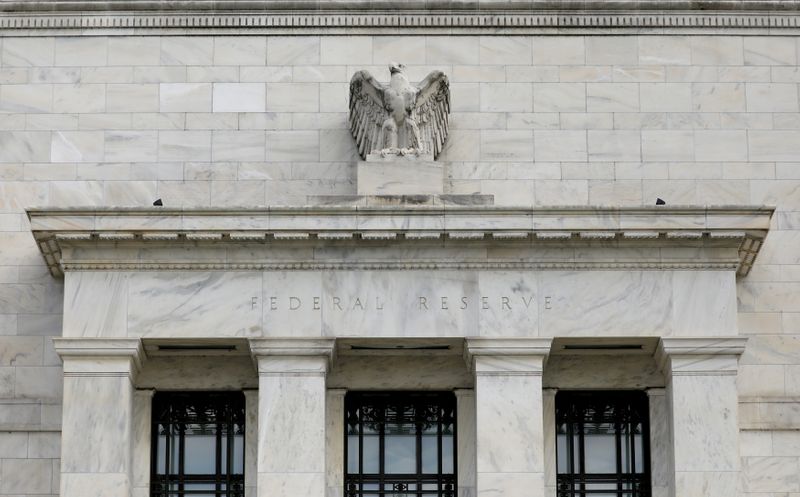By Ann Saphir and Lindsay (NYSE:LNN) Dunsmuir
(Reuters) - Federal Reserve policymakers are publicly debating whether to withdraw support for the U.S. economy more quickly to deal with surging inflation, with one of the central bank's most influential officials signaling on Friday that the idea will be on the table at the Fed's next meeting.
It was just this month that the Fed decided the economy was strong enough to begin to trim its $120 billion in monthly asset purchases, put in place earlier in the pandemic to push down on borrowing costs and boost the recovery. The plan would phase out all bond-buying by mid-2022.
Since that meeting, the economy has gained speed, with reports showing more than half a million jobs added in October, retail sales surging, and consumer inflation notching its biggest annual increase in 31 years.
"I'll be looking closely at the data that we get between now and the December meeting, and it may well be appropriate at that meeting to have a discussion about increasing the pace at which we are reducing our balance sheet," Vice Chair Richard Clarida said at the San Francisco Fed's 2021 Asia Economic Policy Conference, noting that he and many of his colleagues see upside risks to already high inflation. "That will be something to consider at the next meeting.
Earlier Friday, Fed Governor Christopher Waller called for a the Fed to double up on its wind-down of bond purchases, finishing it by April to make way for a possible interest-rate hike in the second quarter of next year.
"The rapid improvement in the labor market and the deteriorating inflation data have pushed me towards favoring a faster pace of tapering and a more rapid removal of accommodation in 2022," Waller said at the Center for Financial Stability in New York.
Waller and St. Louis Fed President James Bullard, who earlier this week called for the Fed to end its bond purchases by March, have been at the forefront of policymakers pushing for an accelerated timeline for tightening.
"All shocks tend to be transitory and fade away. By this logic the Fed should never respond to any shocks, but sometimes it does, as it should... appropriate monetary policy responds to these inflation movements," Waller said.
Clarida's suggestion Friday that a quicker taper could be discussed at the Fed's next policy meeting suggests the idea is gaining traction within the Fed.
After his remarks, interest-rate futures trading reflected rising bets that the Fed will begin to raise rates by June and lift them twice more by the end of the year.
There is still no consensus within the Fed to quicken the taper. San Francisco Fed President Mary Daly earlier this week urged her colleagues to remain patient. Supply-chain disruptions are the main culprit behind higher inflation, she argued, and as those get worked out, inflation will recede; raising rates now would only slow progress in the job market and hurt millions of Americans.
Chicago Fed President Charles Evans on Thursday also said he believes the Fed should stick to its taper plan. But even he, among the Fed's most dovish policymakers, acknowledged he is "more open-minded" to raising interest rates next year than he was six months ago.
Separately, Atlanta Federal Reserve President Raphael Bostic said Thursday he believes the U.S. central bank could start raising interest rates by the middle of next year, based on his outlook that the economy will be back to full employment by then [L1N2S92XA]

The tension over Fed policy comes as President Joe Biden nears a decision on whether to keep Jerome Powell as Fed chair for another term, or to elevate Governor Lael Brainard to the position. A decision is expected by Thanksgiving.
The Fed's next meeting is December 14-15.